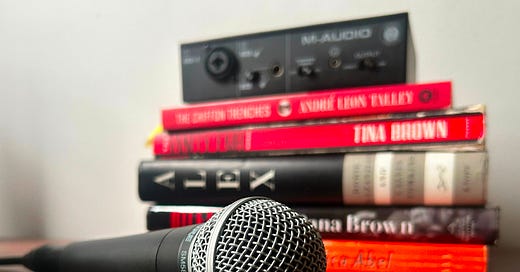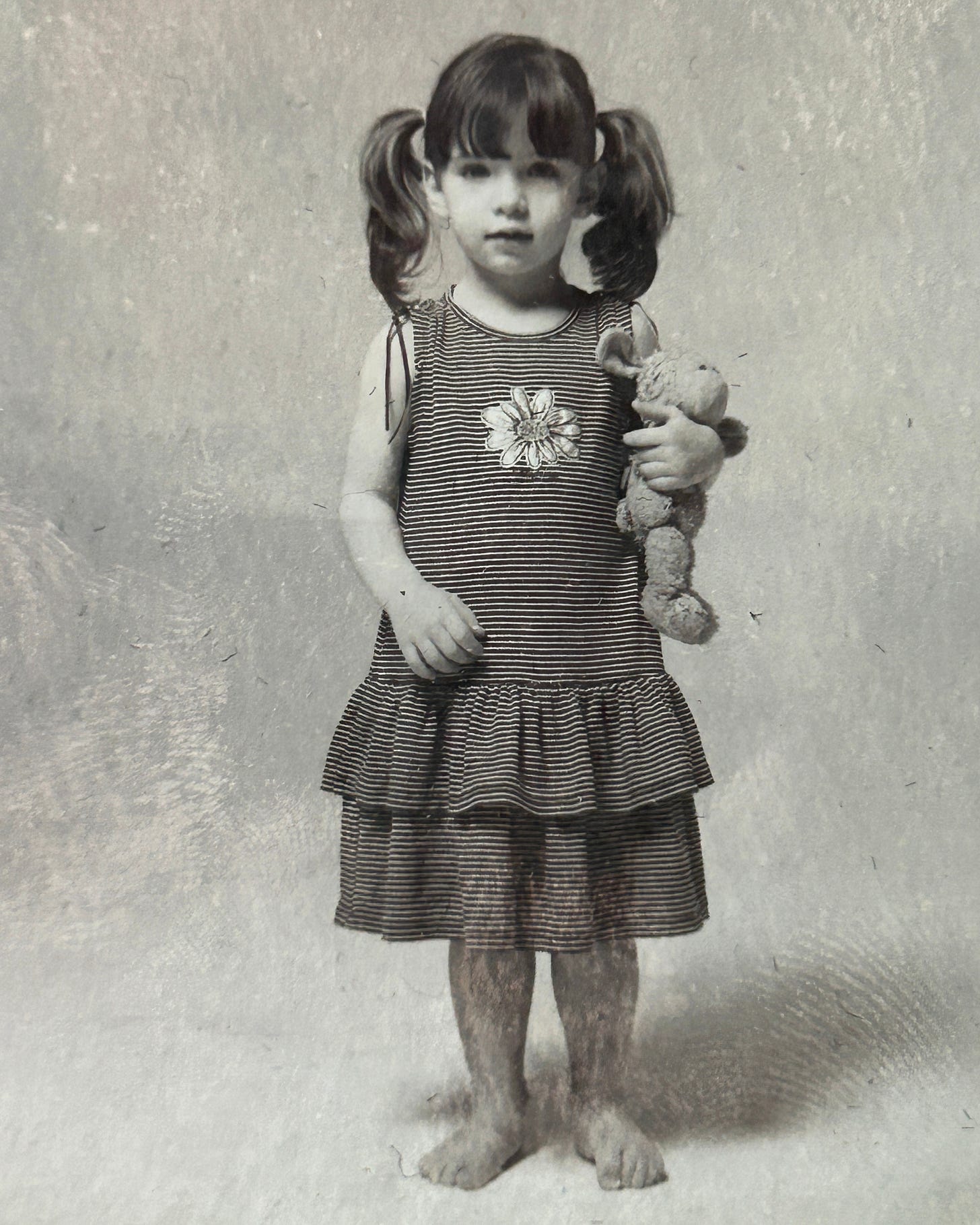How Not to Make a Podcast (Episode #1)
Sometime during the pandemic I set out to make a podcast about what it was like to work at Conde Nast when it was still a fantastic, if problematic place to work. That was my first mistake.
Let me start not with a confession but with a word in my defense: Though I worked there for more than a decade, I was never really one of those Conde Nast people. You know the type. The ones who still tell the story about failing their typing test but somehow landing that assistant job at House & Garden because their older brother’s Middlebury roommate’s mom was a VP in group sales. I’m sure you know the type.
But that’s not me. Trust me. I am not one of those people. Yes, I worked there for a chunk of my career at different magazines and in different capacities. My friends worked there, my rivals worked there, even my wife worked there when we met. In fact, between the time we first met and the time our kids were old enough to get dragged to the daycare at 4 Times Square, we’d collectively logged close to twenty years and approximately six trillion conversations about the place. I was there for 9/11, the black out, the collapse of Lehman Brothers a few blocks up the street. I was on my way to a meeting at 350 Madison when I found out Jerry Garcia died.
One time I watched as my three year old (whom I’d brought to work in pigtails and green Mary Janes) broke loose from my grip and scampered over to a corner booth in the Conde Nast cafeteria where Si Newhouse and Anna Wintour were having their weekly lunch. My daughter approached. They glanced up, acknowledged the intrusion, and resumed their conversation.
For better and worse, the company was a big part of my life. But that’s not why I wanted to make a podcast about it. I wanted to make a podcast about working at Conde Nast because it no longer existed, not in the way it once had. When it was at the height of its power and editorial indulgence, there was no place like it. And I wanted to talk to the people who made the most of it. I thought it would make great audio.
And at the time, at least, I thought I knew something about great audio.
Starting in the pandemic, I’d logged a fair amount of miles walking around Brooklyn, my head in some deep narrative exploration of one kind or another—to find Richard Simmons, or to track down the source of a rumor about a hair metal anthem’s connection to Cold War propaganda, or to Woodstock, Alabama to spend some time listening to John B McLemore.
I’d even managed to get a series made. City of the Rails was an iHeart series about hobos, cops, and robber barons, an exploration of the colorful underbelly of America’s freight train system. It was also a story of a mother’s search for her daughter and the mother, Danelle Morton, happened to be a kick ass reporter and host who really made the series great. It was Danelle’s story, but together we’d pitched it, sold it to iHeart, and it ended up racking up more than a million listens.
I thought I could do it again, only this time I’d be doing the reporting.
But did anyone really need an oral history about what it was like to work at this elitist, obsolete, devastatingly caucasian publishing company? It wasn’t what anyone would describe as a noble pursuit. It’s hardly in the public good for me to devote a bunch of time and effort to capturing the lives of a bunch of talented people who won the editorial lottery and got to live privileged professional lives with perks and liberties the likes of which would never be experienced again.
I just wanted to make another podcast, ok? And I figured (or justified it really) that if I did a good enough job it would create some understanding of Conde Nast as the creatively ambitious, sometimes ridiculous place that had an outsized influence on the culture of the ‘90s and ‘00s. I wanted to explore its culture of elitism, the fantasy of white middle class luxury it enforced and profited from, the stubborn homogeneity of it all. If I didn’t, the project would just be a bunch of editors and publishers talking about their flights on the Concorde, or the house Sag Harbor they bought with an interest free loan. I could do better.
The first person I emailed was Graydon Carter.
I told him I was making a “narrative podcast series about the best days of magazines and the people that had the most fun making them.” I told him the working title was Fun While It Lasted, but I thought The Nasty was a far better title.
Graydon was encouraging but non-committal. After all, he had his own story to tell. He said I should keep him updated on my progress. And I did. That was in the fall of 2021.
Of course I knew Graydon was working on a memoir, and that a media reporter from the Times was working on a big Conde Nast book, and that Keith McNally, who’d fed many of the people I wanted to interview, was writing one, too. The plan was for this podcast to be part of the conversation. After all, the ‘90s were kind of hot all of a sudden.
.So I wrote a pitch and I started reaching out to people.
I called the people at the big companies I’d met pitching the first podcast—at iHeart, Spotify, Wondery, and Apple. I reached out to the producers I admired at Pineapple, Campside, and Gimlet.
One producer told me not to do it. Another told me it was the best podcast pitch they’d ever read.
Guess which one I listened to?
In one of my first interviews my subject asked: “Does anyone even care about magazines?” But he sounded so good when he said it that all I could think was, This is gonna be amazing.
And I called a bunch of former publishers, creative directors, and editors-in-chief. And mostly, they called me back.
And Graydon Carter wasn’t the only one who thought his tenure at Conde Nast was worth writing about.
In fact, among the more than sixty or seventy people I ultimately approached about doing an interview, no fewer than seven were writing, hoping to write, or had written memoirs, novels, screenplays, or plays about their time working at Conde Nast. Seven.
Whether these people were all just seriously delulu or just had too much time on their hands, they clearly felt they had something to say about the place. And I was willing to listen.
Next Episode: The interviews, the scripts, the never-ending hustle. Or go here.






You had me at "delulu."
I'm hooked! I only ever interviewed there, but remember buying a ridiculous skirt suit with fur pompoms (!?!) that I thought was necessary for the occasion. Meanwhile, "delulu" is my new favorite word. I first heard it on The Studio from the great Kathryn Hahn. Love.